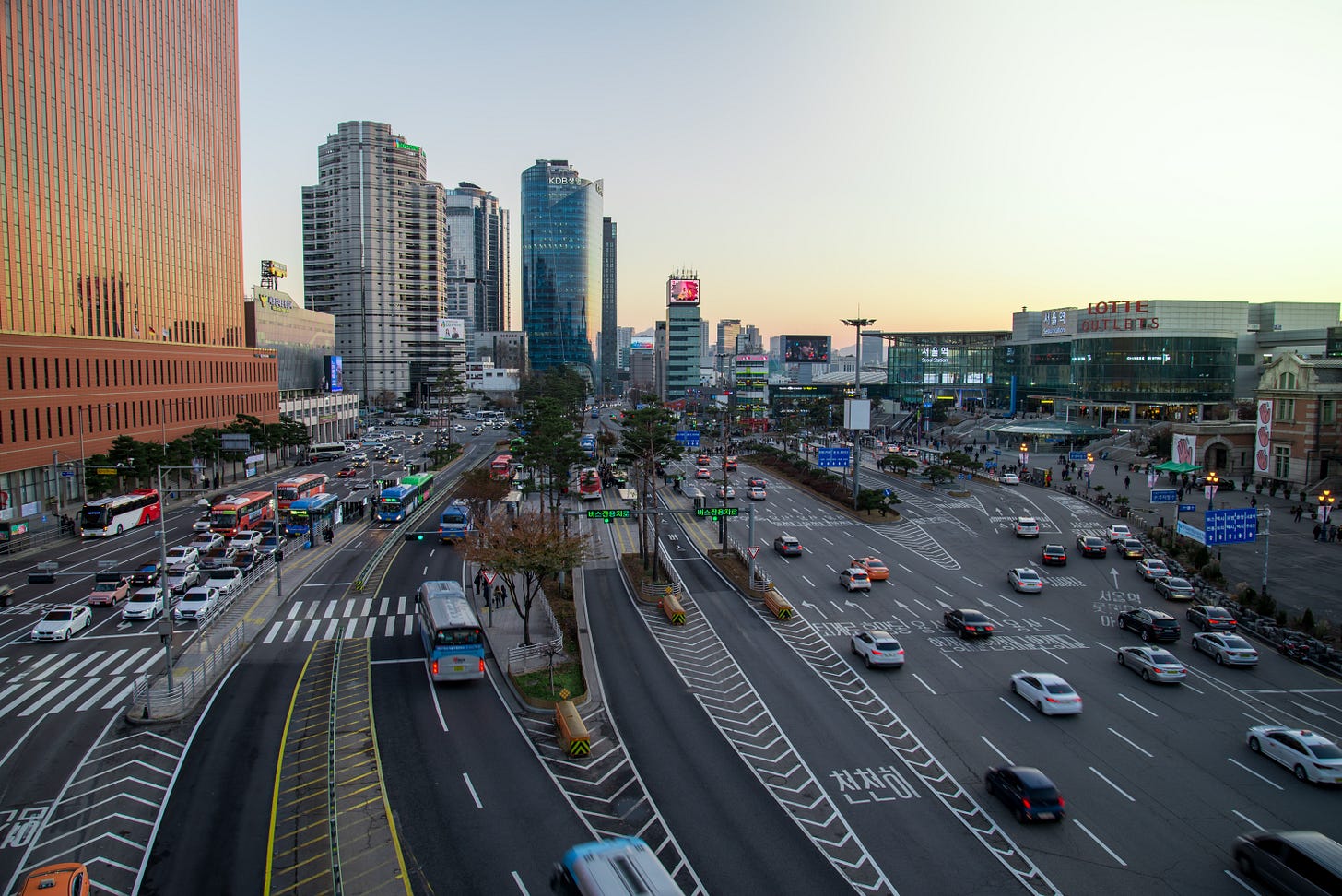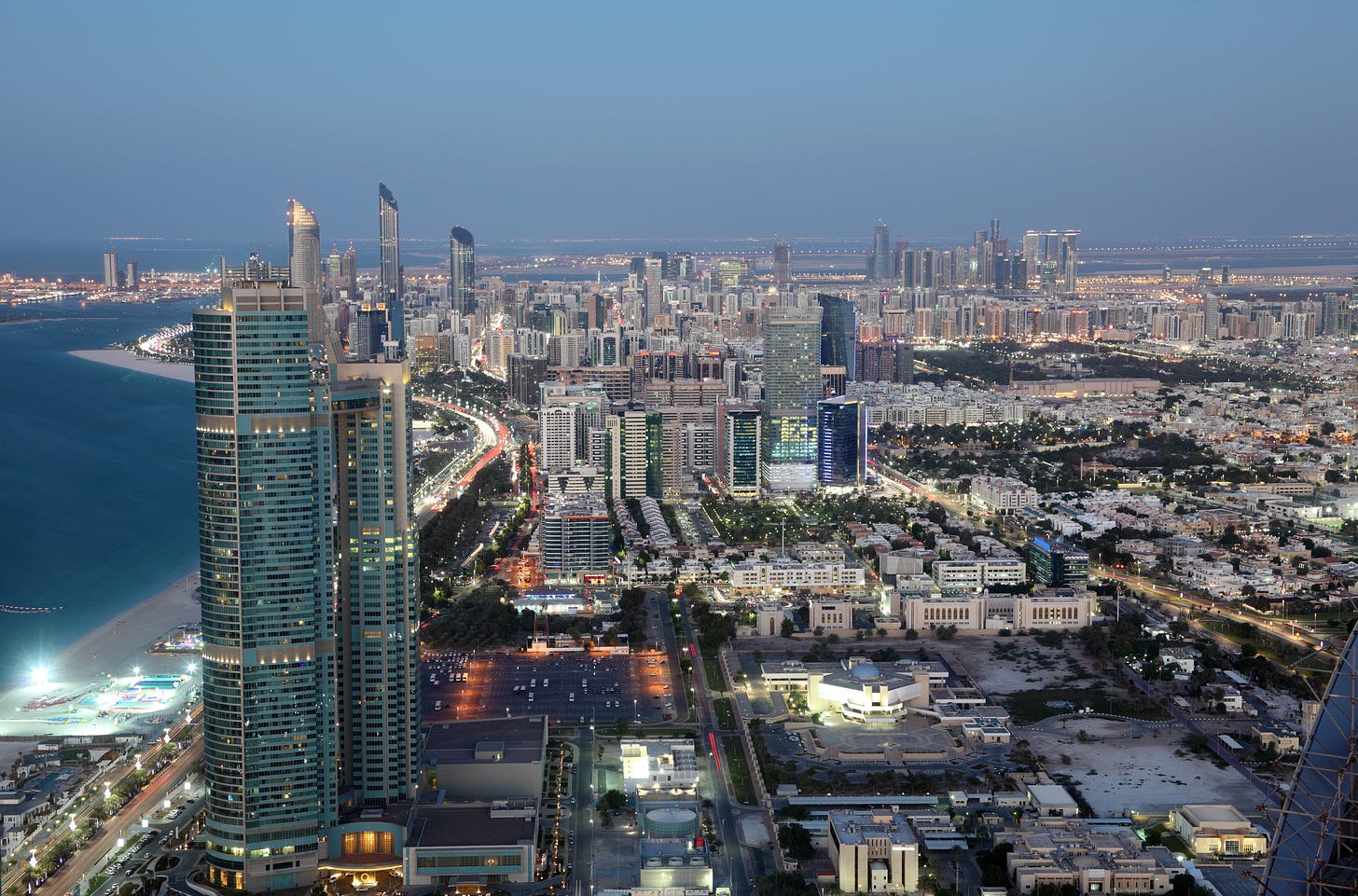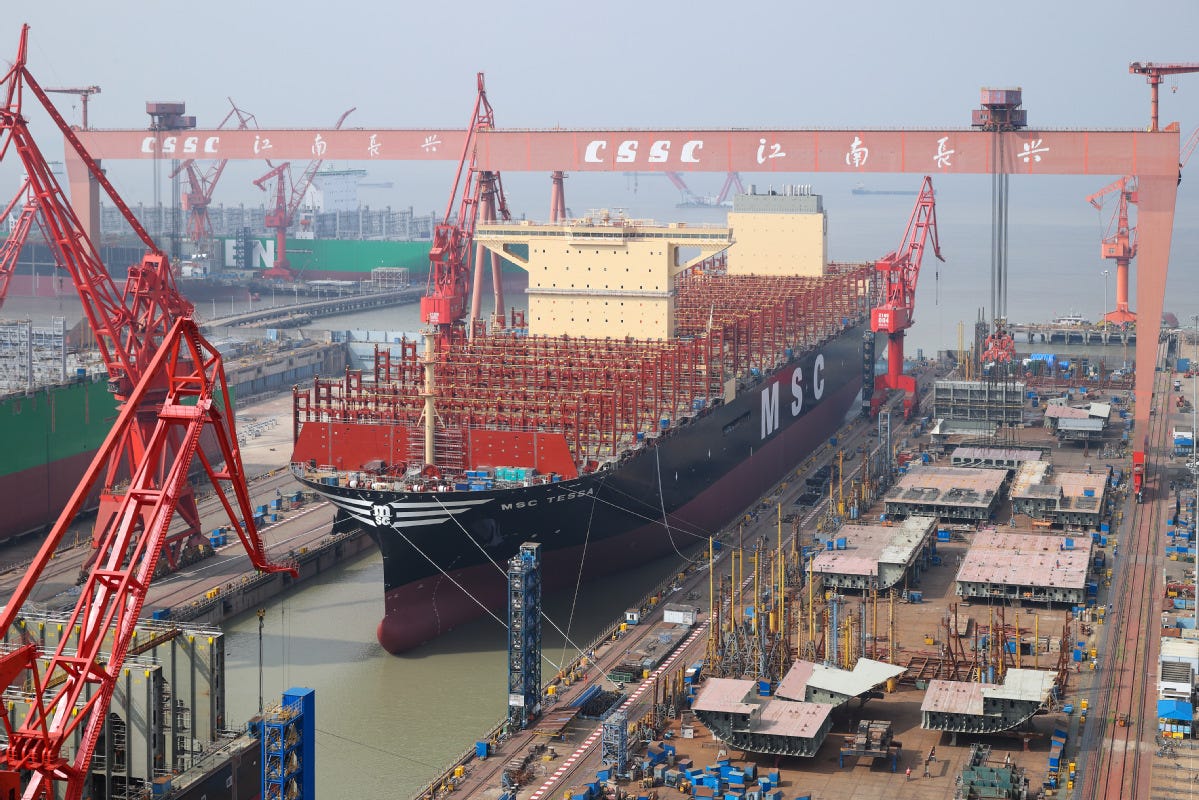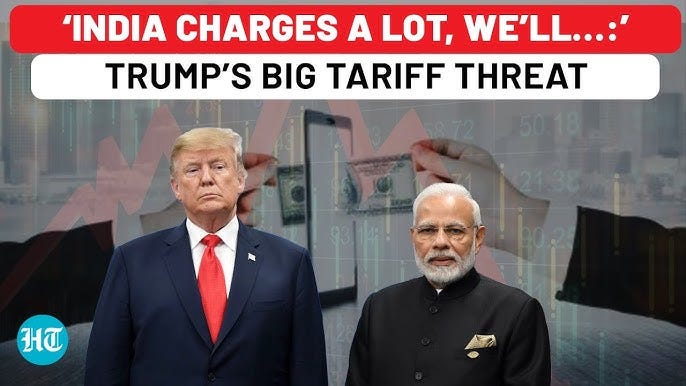Emerging Markets Monitor - Dec 18
Brazil Market Panic, South Korea Opportunities, UBS Bullish on Middle East, China Shipbuilders Dominate, Trump Threatens Tariffs on India
The Top Stories Shaping Emerging Markets - December 18
Brazil’s Traders ‘Sell First, Ask Questions Later’ As Panic Sweeps Markets
Bloomberg
“First it was a collapse in the currency. Now the rest of Brazil’s financial markets are in the cross-hairs as investors lose faith in the government’s ability to contain a deepening fiscal crisis.”
“The selloff that sent the real plunging to a record low is engulfing everything from stocks to local-currency debt to dollar bonds, with traders even piling into hedges against a sovereign default. Market watchers say extraordinary measures on Tuesday by the central bank to stem the currency’s slide are little more than a temporary fix, and warn that signs the nation’s congress may further water down a high-profile austerity package are likely to only add to the turmoil.”
“‘…Brazil has become ‘sell first, ask later’ in the current market,’ said Sergey Goncharov, a money manager at Vontobel Asset Management. ‘The fiscal concerns coupled with the central bank’s reaction to the FX move triggered some panic selling.’”
“The real has been the worst-performing currency in the world over the past four sessions, adding to a 21% drop this year against the greenback….Dollar bonds tumbled the most in emerging markets after defaulted Lebanon and five-year credit default swaps widened to their highest level in more than a year.”
“‘It’s reached a crisis stage from a bond standpoint,’ said Jack McIntyre, a portfolio manager at Brandywine Global Investment Management. ‘Lula’s got to say something constructive.’
“As the selloff spread, strategists rushed to abandon bullish bets on the country’s assets. Over the past two days, JPMorgan Chase & Co. strategists ditched their positive view on Brazil’s dollar debt, while Credit Agricole SA exited its tactical overweight position on the real two weeks after entering the trade.” Bloomberg reports.
South Korea Turmoil Presents Investment Opportunities, Strategist Says
CNBC
“The recent political turmoil in South Korea looks set to be short-lived, according to fund manager Arjun Jayaraman, who said there are opportunities for investors in the country.”
“The portfolio manager at U.S.-based investment firm Causeway Capital Management added that risks around the South Korean stock market were now priced in, following a failed attempt by President Yoon Suk Yeol to impose martial law in early December and his subsequent impeachment on Saturday.”
“‘We think that Korea is obviously quite a cheap market. It’s priced in a lot of negativity,’ Jayaraman told CNBC’s “Squawk Box Asia” last week. ‘The value is certainly compelling there, so we maintain our overweight position.’”
“…Following Yoon’s imposition — and then reversal — of martial law late on Dec. 3, the South Korean Kospi stock market index fell around 5.5% before recouping most losses.”
“One of Causeway Capital Management’s largest active holdings is South Korean car manufacturer Kia, which Jayaraman says has been relatively insulated from the domestic tussle.”
“‘Kia is more dependent on U.S in terms export markets, as well as other parts of the West,’ he said. ‘As an exporter, it is more exposed outside of Korea and will obviously be a beneficiary if we see continued weakness in the Korean won, especially vis-à-vis its competitors in Japan.’” CNBC reports.
UBS Sees ‘Strong Fundamentals’ Supporting Middle East Growth
The National
“UBS, one of the world’s largest wealth managers, is invested in the economic fundamentals of the Middle East and does not rely on ‘blue sky’ or best-case scenarios to grow its business in the region, its group chief executive has said.”
“Switzerland’s largest bank, which completed its merger with former rival Credit Suisse in May, is ‘working on optimising and integrating what we have on the table’ to continue its expansion, regardless of spending policy changes in Saudi Arabia or elsewhere in the region, Sergio Ermotti told The National in an interview.”
“‘We are not counting on blue sky scenarios for our growth in this region. We think that there are strong fundamentals supporting growth,’ Mr Ermotti said on the sidelines of the Abu Dhabi Finance Week.”
“…’If you look at in terms of wealth management assets in this region, there is around $5 trillion [and] that are growing faster than the asset base of the European counterparts,’ he said. ‘It's a very important market for us.’”
“The Middle East is also important for UBS in terms of Asia, which is the new growth corridor and includes fast-expanding markets such as India. The Swiss bank can help clients diversify their investments in those markets, he added.”
“‘Around 6,700 people, very wealthy people, coming to the UAE [between] 2020 and 2024 is huge. It is the fifth-largest inbound population [movement] … so you can see how this plays well into the geopolitical dimension,’ Mr Ermotti said.”
“Affluent people are moving to the region because ‘they feel safe, they feel they have predictable regulation, stable political regimes, they see innovation, they see interconnectedness and they see the infrastructure’, he said. ‘In this complex world, I think that the Middle East, or part of the Middle East, can play a pretty good role.’”
“Earlier this month, UBS said the Mena region has attracted the most billionaire wealth globally since Covid-19 as the uber-rich move to countries that offer premium health care, education, safety and ease of doing business.”
“The aggregate wealth of UAE billionaires’ alone rose by 39.5 per cent annually to $138.7 billion this year, with the number of billionaires growing by one to 18, UBS’s Billionaire Ambitions report found.” Sarmad Khan reports.
China Shipbuilders Continue to Dominate Amid Surge of New Orders
South China Morning Post
“China, the world’s largest shipbuilder by market share, is expected to receive a raft of new orders as the global industry enters a renaissance, analysts said.”
“Demand for new ships is expected to surge over the next few years, as shipping companies have a ‘pressing need’ to replace ageing vessels and comply with new environmental regulations, according to Min Joo Kang and Rico Luman, economists at the financial firm ING.”
“And China is set to be the main beneficiary of this market upswing, with its primary competitor South Korea likely to take a more ‘cautious’ approach by focusing on profitable and reliable orders, the economists said in a research note released on Monday.”
“London and Shanghai-based industrial consultancy Hartland Shipping Services has also predicted sustained growth for the entire sector, with the prospects particularly bright for Chinese shipyards.”
“In October, market demand for new-build container ships reached its highest level since the second quarter of 2021, the peak of the last wave of global shipbuilding, the company said in a report published that month.”
“The need for new ships is being driven in part by the introduction of the UN International Maritime Organisation’s Energy Efficiency Existing Ship Index and Carbon Intensity Indicator in January 2023, which mandate that all ships calculate their energy efficiency and carbon ratings to cut pollution, according to ING.”
“Global shipbuilding boomed between 2002 and 2008 due to China’s rapid economic growth and an expansion in global trade, but the industry suffered a downslide following the global financial crisis in 2008.”
“China also emerged as a dominant player in the shipbuilding industry during that period, with its builders churning out container ships, bulk carriers, oil tankers and liquefied natural gas (LNG) carriers.”
“According to shipping market analysts Clarkson Research, Chinese shipyards commanded an overwhelming 86 per cent of global orders for new ships as of September, followed by South Korea with a 12 per cent share.”
“China accounted for 55 per cent of the global order backlog as of the end of September, with South Korea making up a 26 per cent share, Clarkson Research said.” SCMP reports.
Trump Trains Tariff Gun on India
Indian Express
“Weeks after threatening to raise tariffs on America’s top three trade partners—Mexico, China, and Canada—US President-elect Donald Trump on Tuesday turned his attention to India, criticising its high tariffs and warning that Washington would impose reciprocal taxes on Indian products.”
“This marks the first time Trump has threatened tariffs on Indian goods since winning the election in November. However, during his campaign, Trump frequently referred to India as a ‘very big [trade] abuser.’”
“Speaking to reporters at Mar-a-Lago, Trump criticised India’s tariff regime, pointing to 100 per cent tariffs on certain US products…When asked about a potential trade agreement with China, Trump redirected the conversation to India and Brazil, both of which he accused of imposing high tariffs. ‘India charges a lot. Brazil charges a lot. If they want to charge us, that’s fine, but we’re going to charge them the same thing,’ Trump said at the briefing.”
“The US remains India’s largest trade partner, with bilateral trade reaching nearly $120 billion in FY24, slightly surpassing India’s trade with China. Unlike China, though, India enjoys a favourable trade relationship with the US, making it a critical source of foreign exchange.” Ravi Dutta Mishra reports.
“Success is not final, failure is not fatal: it is the courage to continue that counts.”
― Winston S. Churchill







